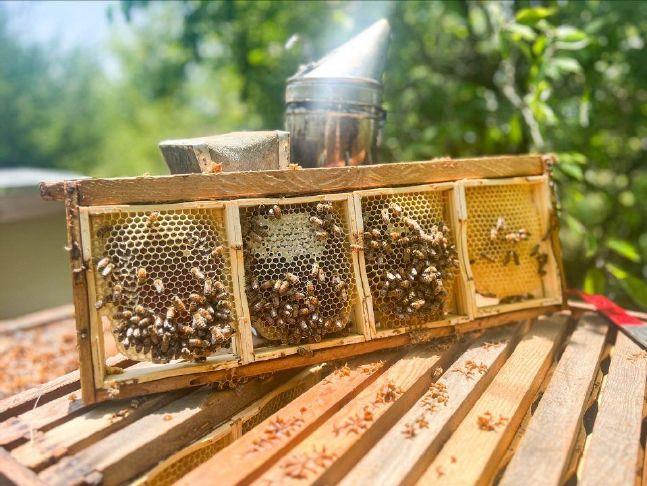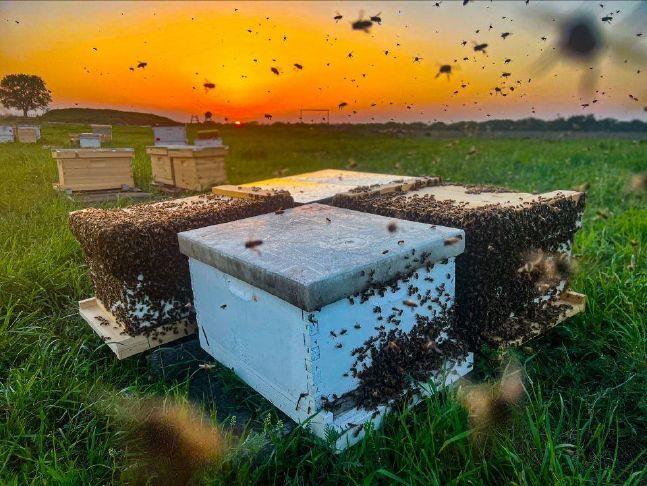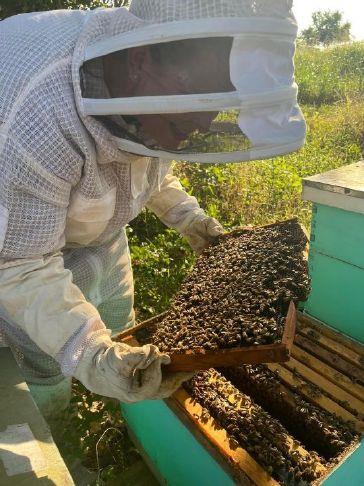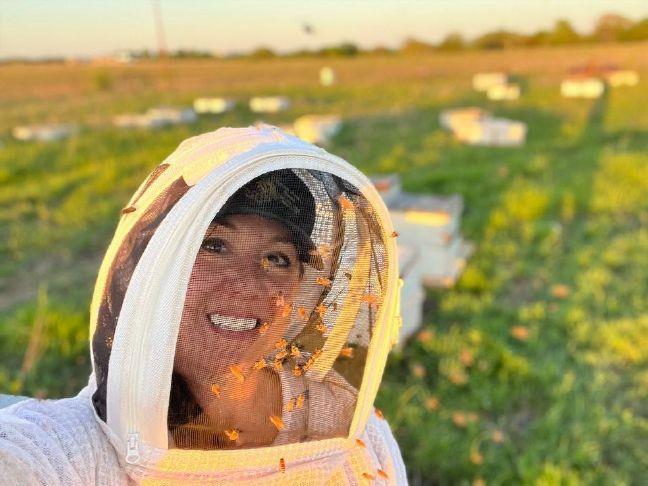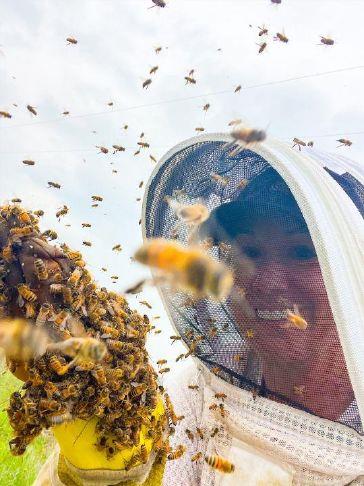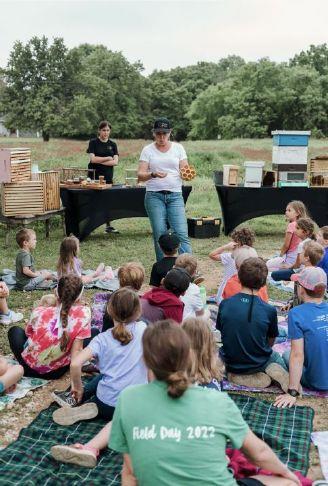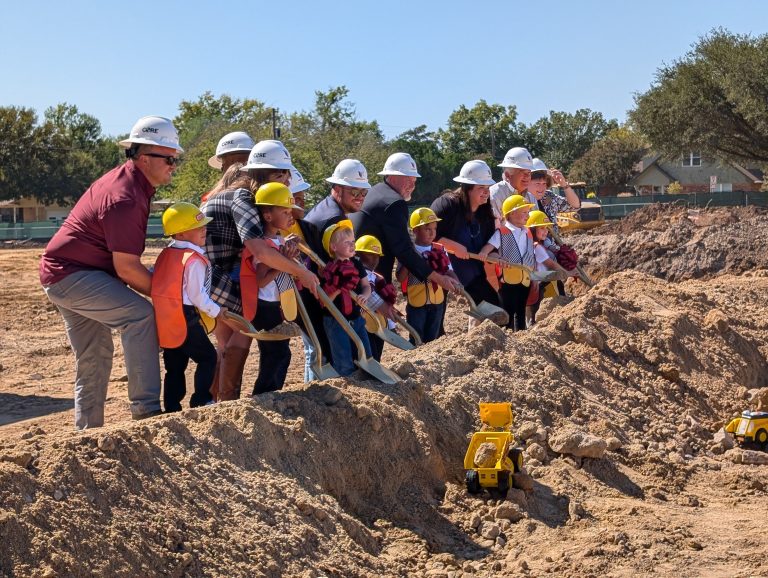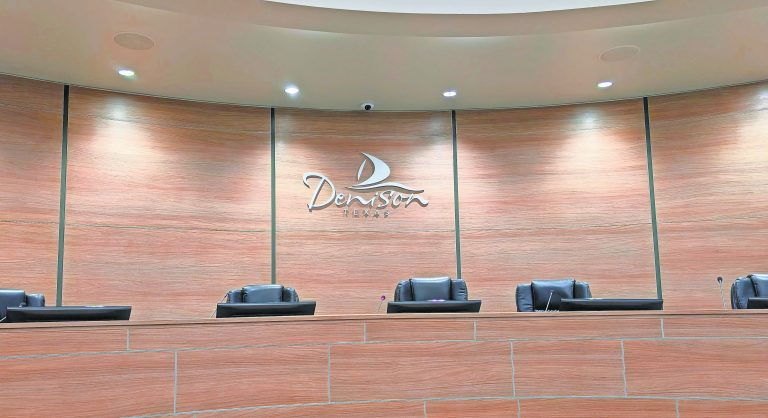Late July and early August can be some of the hottest times here in North Texas. It is also a time with another buzz worthy aspect. It is the time to harvest local honey.
One of the local honey producers is Boxed Arrow Farms which was established in 2011 shortly after Emory and Marileigh McCall moved to Whitesboro.
“Honeybees where an afterthought for keeping (an) Agriculture exemption on our property- Like many Texans are doing to receive property tax relief. Little did I know that I would find a true passion for an aspect of Agriculture that most people don’t realize is the basis to our existence,” Marileigh McCall said.
“We started off with a few colonies, only to fail miserably. I knew that there had to be a better way to become efficient in understanding the environment needed to keep Honeybees. I began to research more in depth, and applying my background in agriculture. With the assistance of my husband and daughter, we created a vast oasis of our property here in Whitesboro, that is truly inviting for all pollinators,” she explained.
The business currently owns and maintains over 70 colonies including Italians, Russians, Carolians and what Marileigh McCall called, “the best breed ever the feral backyard specials.”
“Being a beekeeper is truly being a steward of nature,” she said. “The Honeybees do not need us to survive. They have been doing it successfully for thousands of years. We as the beekeeper are here to sustain the environment to ensure their success. Beekeeping requires us to tend the colonies in all seasons, just like cattle ranching. Through the cold, extreme heat etc. A huge misconception is that you can place bees on a property and that is it. Well, that is possible that the bees will survive, but to truly have them thrive, they need care During the honey flow season we inspect and work the colonies every 14 days, some more, some less… it just depends on the needs of the colonies and the condition of the immediate environment that the bees are in. This care is year-round and we must definably play off of the weather patterns and conditions.”
She said honey harvest is a window of time shortly after the main bloom of Spring. But the harvest can last from mid July to mid August,
“Our hopes is that our bee colonies are extremely healthy and can store an abondance of extra nectar (Honey) for us to potentially harvest,” she said. “This doesn’t always happen as smoothly as it sounds. Honeybees must contend with the weather to have a productive excess of honey stores for us to harvest. This year in particular — we had a very wet spring, which limited the available flying time and food resources for the colonies to forage on. Even with the managed amount of planted forage we have for our honeybees, we still saw a massive decrease in honey production for this area this year. We will check each colony to see what can be safely harvested — in the early Spring we place honey supers above the main “house area” this is where they will hopefully store excess honey. In about mid July we will remove the frames and bring it to our processing house.”
She said they generally average over 500 pounds a season.
“Unfortunately, this season will only be about half of that, due to weather in the spring,” she said.
We bottle it in different sized bottles and get it ready for retail sale.
Marileigh McCall is the main beekeeper for their apiary.
“I am blessed to have a great family support from my husband and daughter,” she said. “We are also partnered with Little Bee Honey Farm out of Gordonville, Texas to bring quality beekeeping supplies and live honeybees to local beekeepers here in North Texas.
“We at Boxed Arrow Farms strive to assist those that have an interest in beekeeping be able to discover and learn more about this craft. We offer everything from property consults to help plant and manage your acreage, hands on education and handling of honeybee colonies, removals, agricultural exemptions, honey processing and more. I feel that education is the most important of being a keeper of the bees~ this gives us the greatest opportunity to preserve nature as it is rapidly changing around us.”
The family farm, Boxed Arrow Farms, was named after the family’s cattle brand.
“My husband’s initials EM (backwards E lazy M) our children said it looked like and arrow in a box, and that’s how we decided on a name,” she said.
They sell bottle and cut comb honey, spring and fall pollen, propolis, and beeswax. All direct products that are naturally produced by their own Honeybees.
